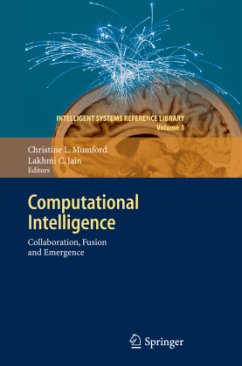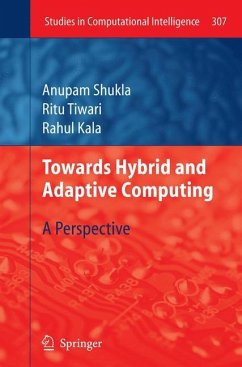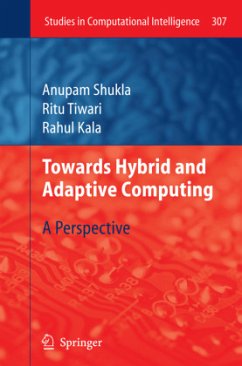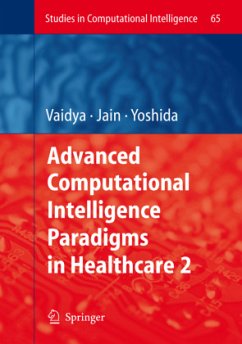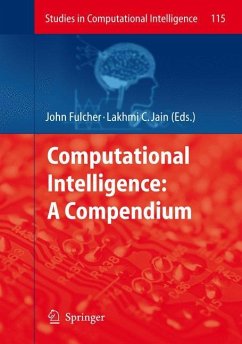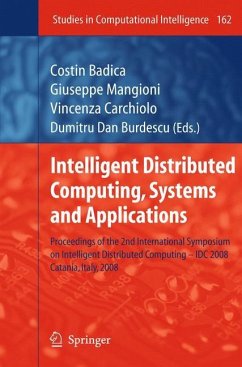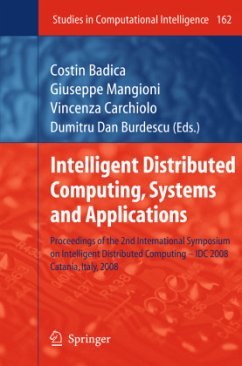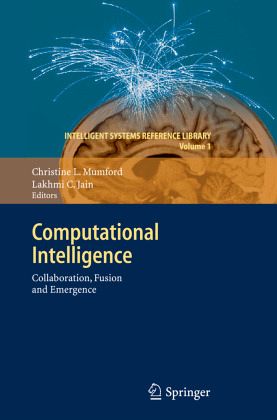
Computational Intelligence
Collaboration, Fusion and Emergence
Herausgegeben: Mumford, Christine L.
Versandkostenfrei!
Versandfertig in 6-10 Tagen
228,99 €
inkl. MwSt.

PAYBACK Punkte
114 °P sammeln!
This book is about synergy in computational intelligence (CI). It is a c- lection of chapters that covers a rich and diverse variety of computer-based techniques, all involving some aspect of computational intelligence, but each one taking a somewhat pragmatic view. Many complex problems in the real world require the application of some form of what we loosely call "intel- gence"fortheirsolution. Fewcanbesolvedbythenaiveapplicationofasingle technique, however good it is. Authors in this collection recognize the li- tations of individual paradigms, and propose some practical and novel ways in w...
This book is about synergy in computational intelligence (CI). It is a c- lection of chapters that covers a rich and diverse variety of computer-based techniques, all involving some aspect of computational intelligence, but each one taking a somewhat pragmatic view. Many complex problems in the real world require the application of some form of what we loosely call "intel- gence"fortheirsolution. Fewcanbesolvedbythenaiveapplicationofasingle technique, however good it is. Authors in this collection recognize the li- tations of individual paradigms, and propose some practical and novel ways in which di?erent CI techniques can be combined with each other, or with more traditional computational techniques, to produce powerful probl- solving environments which exhibit synergy, i. e. , systems in which the whole 1 is greater than the sum of the parts . Computational intelligence is a relatively new term, and there is some d- agreement as to its precise de?nition. Some practitioners limit its scope to schemes involving evolutionary algorithms, neural networks, fuzzy logic, or hybrids of these. For others, the de?nition is a little more ?exible, and will include paradigms such as Bayesian belief networks, multi-agent systems, case-based reasoning and so on. Generally, the term has a similar meaning to the well-known phrase "Arti?cial Intelligence" (AI), although CI is p- ceived moreas a "bottom up" approachfrom which intelligent behaviour can emerge,whereasAItendstobestudiedfromthe"topdown",andderivefrom pondering upon the "meaning of intelligence". (These and other key issues will be discussed in more detail in Chapter 1.



